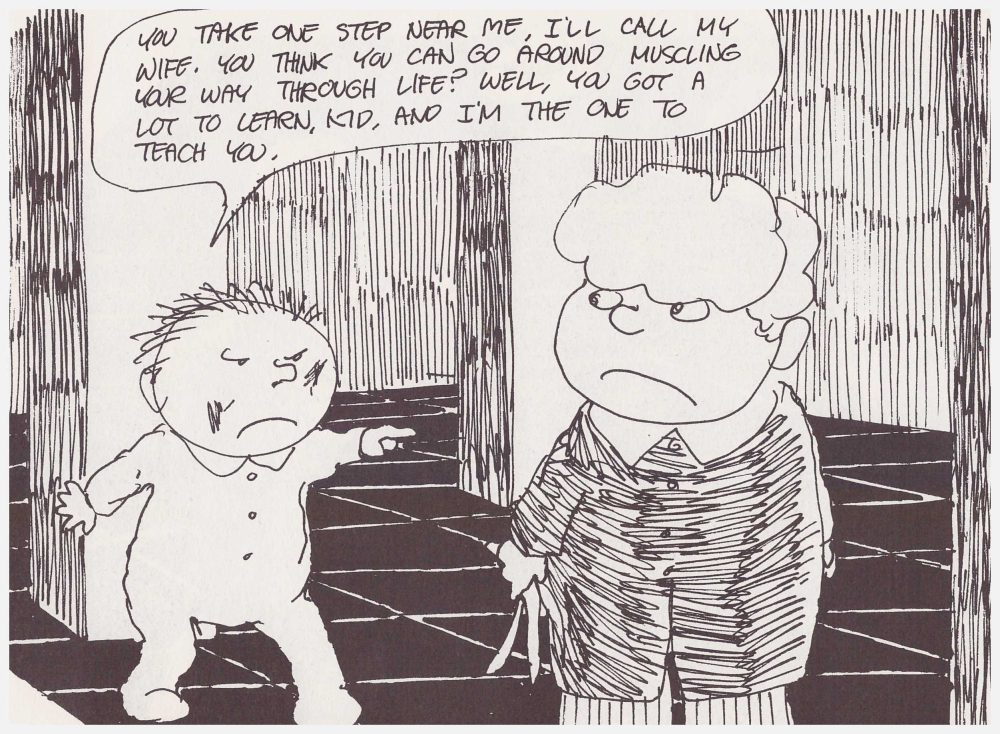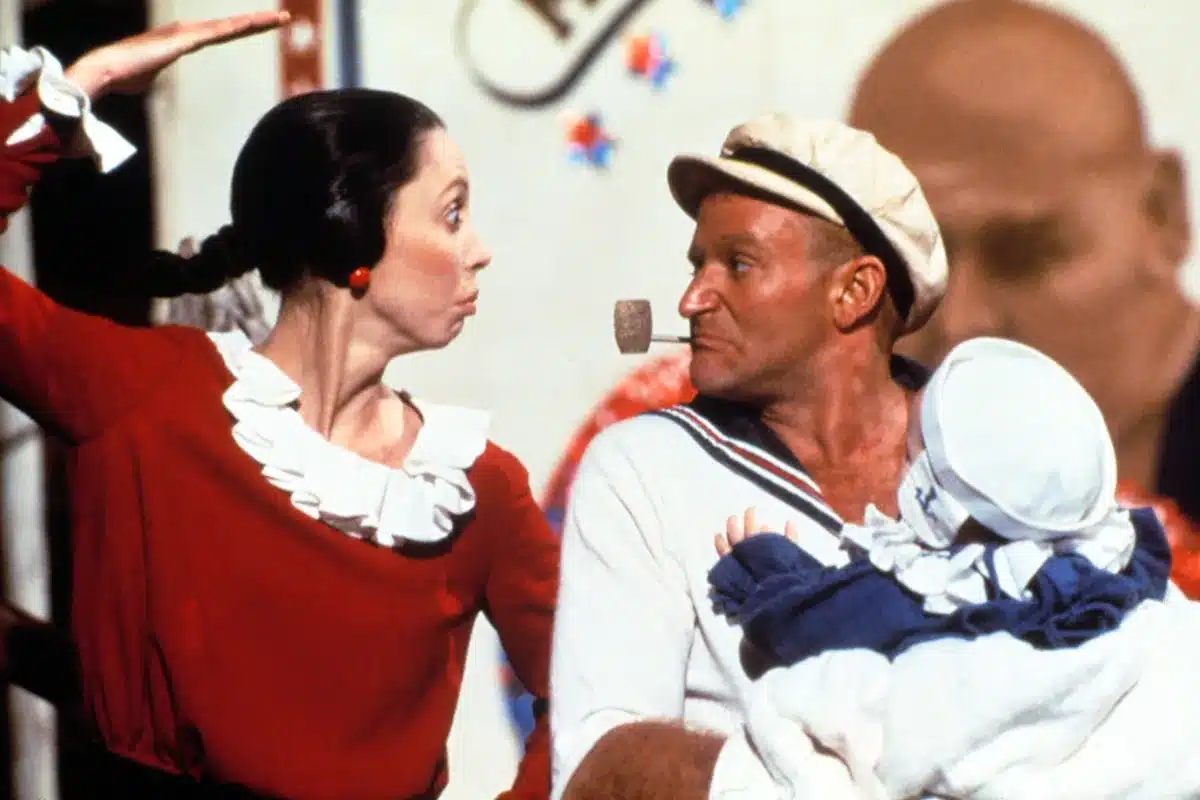The following obituary was kindly provided by Luke Cornelius, who originally drafted it for Multiversity Comics.
by Luke Cornelius
Washington Post reports legendary cartoonist and writer Jules Feiffer passed away at his home in Richfield Springs, New York, on Friday, January 17. His widow, JZ Holdenstates the cause of death was congestive heart failure. He was 95. A groundbreaking satirical cartoonist, playwright, and screenwriter, Feiffer was also arguably best known for illustrating the children’s fantasy book The Phantom Tollbooth (by Norton Justerpictured above, to Feiffer’s left.)
Feiffer won an Oscar for his animated short Munro and was later nominated for several Writer’s Guild of America awards for screenplays including Carnal Knowledge and Little Murders. He was a Tony and Obie award nominee for his plays, and won a Pulitzer Prize for his comics, as well as lifetime achievement awards from the National Cartoonist Society and the Eisner Awards. Feiffer was truly a creator who spanned mediums and made an impact on all of them.
Jules Ralph Feiffer was born into a Jewish family in the Bronx on January 26, 1929. As a result of the Great Depression, his father, Davidwas a largely unemployed salesman, while his mother, Rhodawas a fashion designer, who sold watercolor designs door-to-door. It was she who encouraged Jules to draw from a young age. At the age of 13, he had a drawing table for his bedroom. He studied anatomy at the Art Students League of New York after his mother enrolled him there, and graduated from James Monroe High School in 1947.
It was comics that really captured Feiffer’s imagination growing up. He read the comic strips in the newspapers his father would bring home, and cited Our Boarding House, Alley Oopand Wash Tubbs as some of his favorites. After graduating at the age of 16, Feiffer sought to be employed by his idol, Will Eisner. Eisner was forced to give Feiffer a low paid job in spite of not liking his artwork because of Feiffer’s enthusiasm for his work, and the similarities in their upbringing. Eventually though, their relationship grew, with Eisner allowing Feiffer to work on the balloons for The Spiritbefore doing entire stories of his own.
In 1956, Feiffer stopped working with Eisner and started at The Village Voiceinitially for free and then as a staff cartoonist, starting his own comic strip, which ran until 1997. The strip was initially titled Sick, Sick, Sickand Feiffer’s Fablesbefore finally becoming Feiffer. I have published his strip as a collection, Sick, Sick, Sick: A Guide To Non-Confident Livingwhich led to him becoming a regular in the pages of the London Observer and Playboy magazine. By April 1959, Feiffer’s strips were being distributed nationally.
Over the course of his career, Feiffer followed up the success of his Sick, Sick, Sick collection with more collections such as The Explainers, Jules Feiffer’s America: From Eisenhower to Reaganand Marriage is an Invasion of Privacy and Other Dangerous Views. He wrote two novels, multiple children’s books, and The Great Comic Book Heroesthe first history of superheroes in 1965. His first original graphic novel, Tantrumwas published in 1979.


As well as print, Feiffer worked in theater and film. He wrote Gene Deitch‘s Munrowhich won the Academy Award for Best Animated Short Film in 1961. His plays included Little Murders (1967), Feiffer’s People (1969), The White House Murder Case (1970), Knock Knock (1976), Grown Ups (1982), and Elliot Loves (1990). He wrote the script for the 1971 film adaptation of Little Murdersas well as the scripts for Michael Nichols‘s Carnal Knowledge, Robert Altman‘s Popeyeand I Want To Go Home.
In more recent years, Feiffer has been employed in a variety of roles in different educational facilities. In 2010, his autobiography, Backing into Forward: A Memoir was published and in 2014, he penned the acclaimed Kill My Motherwith a prequel, Kill My Mother: My Cousin Josephreleased two years later. 2024 saw the release of his first (and only) children’s graphic novel, Amazing Grapes.
Feiffer’s career in cartooning was honored with multiple awards, including a Pulitzer Prize in 1986, and an induction into the Will Eisner Hall of Fame in 2004. Little Murders and The White House Murder Case respectively earned him an Obie Award and Outer Circle Critics Award in 1969 and 1970, with the Writers Guild of America awarding him the Lifetime Achievement Award in 2010.
Feiffer married his first wife, Judith Sheftelin 1961; they had one child. He remarried in 1983 to comedian Jennifer Allenand had two more children. They divorced in 2013, and he married JZ Holden in 2016. He is survived by Holden, and his three children, including actress Halley Feifferand writer Kate Feiffer.




